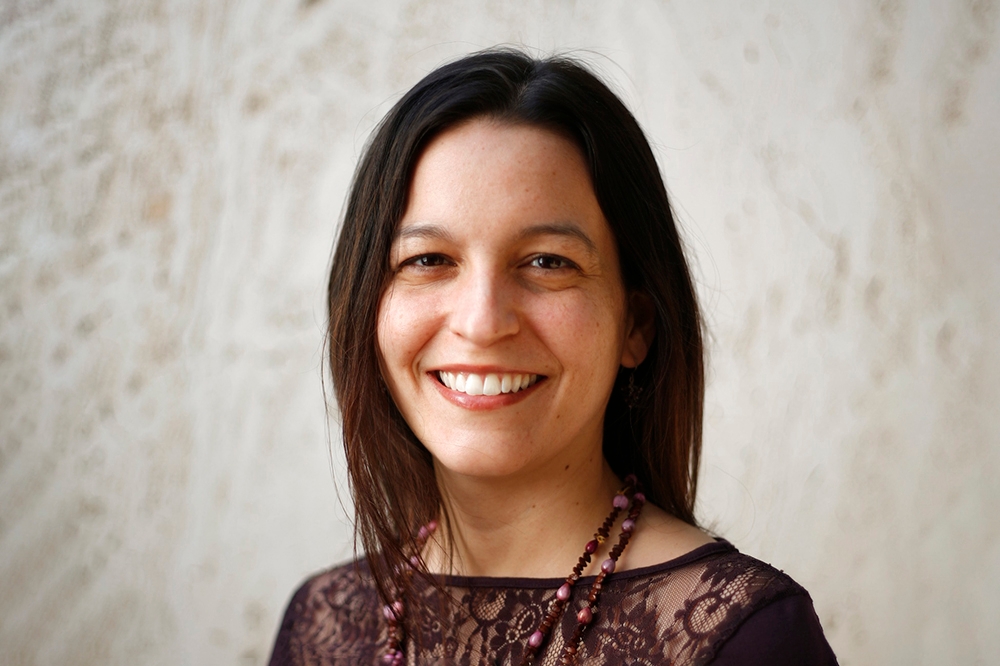
OU-Tulsa Partners With Nonprofit on ‘Food As Medicine’ Study
We all probably recognize that how and what we eat affects our health. The concept of “food as medicine,” or looking at how diet directly affects health outcomes, may be especially helpful for those living with HIV.
But how we eat is also affected by many other factors – and a significant one is food insecurity, or the lack of reliable access to nutritious foods.
Food insecurity disproportionately impacts the HIV community in a big way. Research has shown that as many as 50% of this vulnerable population are affected.
Marianna Wetherill, associate professor, Henry Zarrow Presidential Professor and the George Kaiser Family Foundation Chair in Population Healthcare at OU-Tulsa, has been working in the “food as medicine” space for nearly 20 years, with a special focus on individuals living with an HIV positive diagnosis.
In fact, along with other members of the health care community and social services, in 2013 she conducted the state’s first assessment of food insecurity in the HIV community.
Wetherill is jointly appointed at the OU Hudson College of Public Health’s Department of Health Promotion Sciences and the OU-TU School of Community Medicine’s Department of Family and Community Medicine.
She shares that as many as 21% of people with HIV have insulin resistance, a condition where the body is less sensitive to insulin levels which causes blood sugar levels to creep up over time. This can lead to weight gain and contributes to chronic conditions, including diabetes, renal insufficiency and liver disease.
Enter a special kind of research study: NOURISH-OK, or Nutrition to Optimize, Understand, and Restore Insulin Sensitivity in Oklahoma.
Through the support of a $2.4 million grant from the National Institute of Diabetes and Digestive and Kidney Diseases, this community-based participatory research study will shed light on ways to improve the overall health of individuals living with HIV through nutrition.
Researchers will evaluate whether the “food as medicine” approach can improve key health concerns linked to food insecurity and insulin resistance over a 12-week period through the randomized study.
Wetherill has teamed up with a local nonprofit, Tulsa CARES, which has served this population in the Tulsa area for more than 30 years.
The organization regularly hosts interns and practicum students from various OU-Tulsa programs, and Wetherill worked for the organization prior to her transition to OU-Tulsa.
“Tulsa CARES is the largest social service provider for people living with HIV in northeastern Oklahoma and has a strong history of progressive food programs, which made them a perfect partner for this project,” Wetherill said. “The NOURISH-OK Study will help Tulsa CARES understand what causes food insecurity for their clients, how it may lead to health problems in HIV and how they can help improve food security for the clients they serve.”
The study is slated for a five-year timeline and started enrolling participants in 2021.
The first step, currently underway, is to assess 500 individuals living with HIV to test the study’s conceptual framework, which is described in a research article to be published in the Frontiers In Clinical Diabetes and Healthcare.
The conceptual framework will explore how upstream factors, such as early life events, trauma, current aspects of the built environment and everyday discrimination may contribute to food insecurity and various health behaviors, including diet, tobacco use, stress and sleep quality.
The study will test how these factors are associated with objective health measures including body composition (body fat levels, lean muscle mass and hydration) and blood work, including insulin, blood sugar and markers of chronic inflammation.
The study’s co-investigator, Dr. Kent Teague, center director of OU Center for Integrative Immunology, is leading the analysis of all biomarkers.
A subsample of study participants are also eligible to participate in a one-month study to better understand how dietary intake fluctuates during the month and changes in the microbiome.
Microbiome analyses, including saliva and gut samples, are being completed under the direction of study co-investigator Dr. Gerwald Koehler of the Integrative Microbiome Research Laboratory at the OSU Center for Health Sciences.
Later phases of the study will include qualitative interviews to better understand how relationships identified in the first phase of the study play out in real life.
This information will then be applied to develop and test an intervention that includes medically-tailored food boxes and additional resource supports informed by findings from the initial phases of the study.
A participant advisory committee, comprised of people who are eligible for the study, regularly meet with the research team to discuss recruitment strategies, study ethics, future research questions and dissemination plans.
Tulsa CARES will then be able to continue the work with their clients through their food pantry and farmers markets.
“Food as medicine is an ever-evolving concept,” Wetherill said. “This study is about pushing the boundaries about how we traditionally design nutrition interventions to ensure we fully understand what it means for people living with HIV to be nourished through food – physically, emotionally and socially. Most of the time, the intended recipients of ‘food as medicine’ are excluded from the design table. This study is about changing that.”
The NOURISH-OK study is founded on the principles of community collaboration. If you would like to be involved, know someone who might be eligible or would like to read more, visit Tulsa CARES on their website.
By Bonnie Rucker
